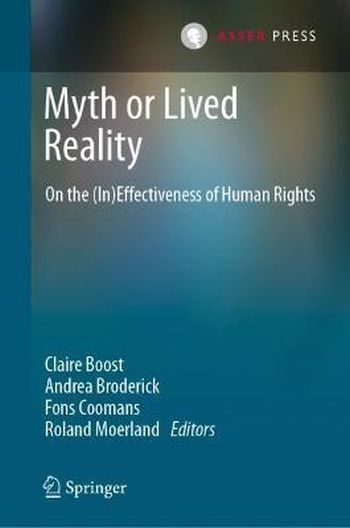
This book seeks to explore, from a multidisciplinary perspective, whether human rights are, in fact, a myth or a lived reality. Over the years much has been said about their effectiveness or, rather, their ineffectiveness.
This perceived ineffectiveness relates not only to institutional challenges at the international level, but also to national implementation mechanisms and processes. In addition, questions have arisen as to whether individuals or groups of individuals actually benefit from the normative guarantees contained in human rights law and whether human rights as legal constructs can be effectively translated into better outcomes.
This volume can be distinguished from the existing literature by virtue of the fact that it not only brings together scholars at different stages of their careers, but also that it incorporates contributions that adopt different methodological perspectives and cover a variety of topics.
The book should prove of great benefit to human rights researchers, human rights practitioners, NGOs and students.